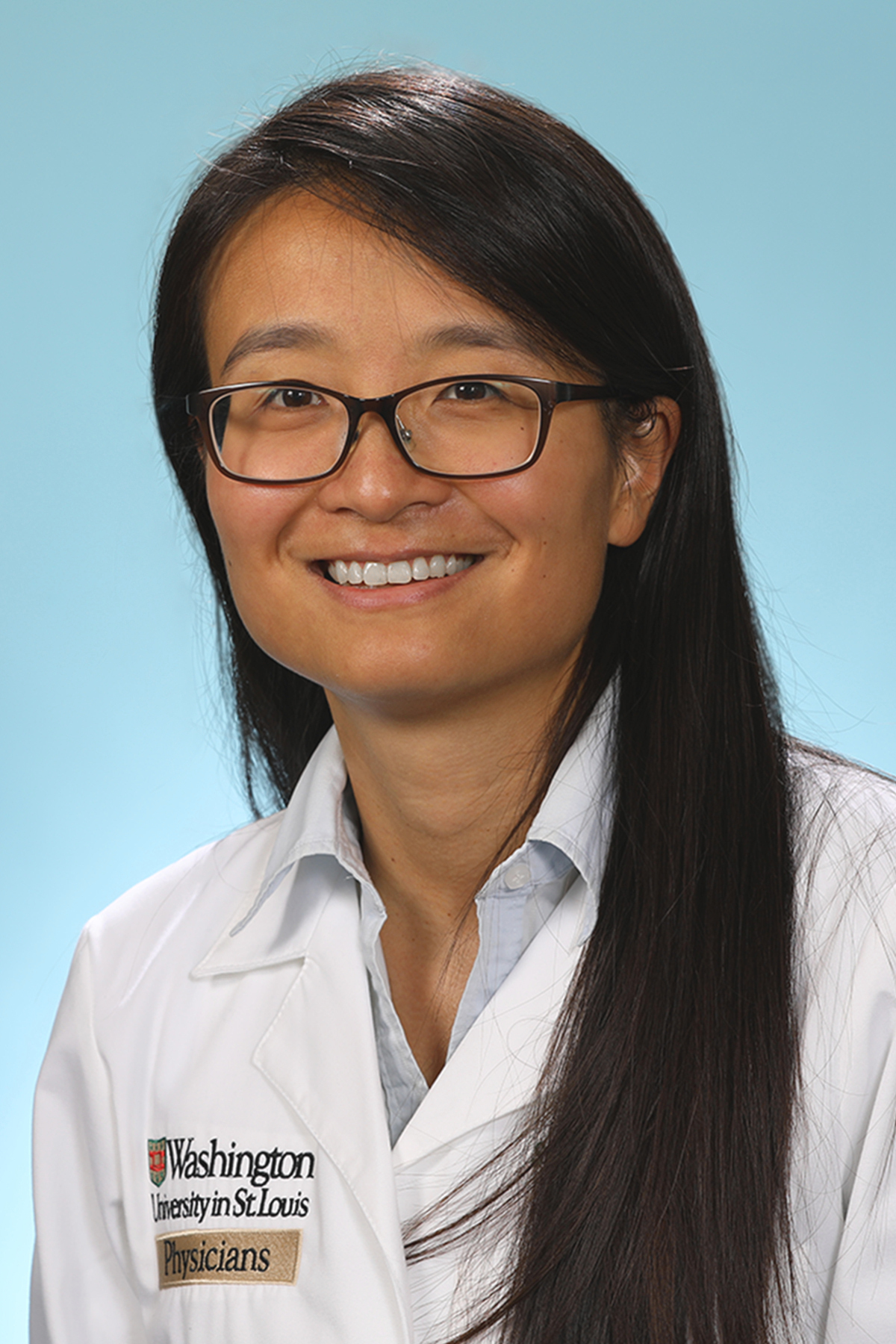2022 IARS Mentored Research Award Recipient and Top Clinical Research Abstract Finalist Interview: Sunny Lou, MD, PhD
External Validation of a Publicly Available Surgical Transfusion Risk Prediction Model: A Multi-Center Perioperative Outcomes Group Study
 Sunny Lou, MD, PhD
Sunny Lou, MD, PhD
Instructor in Anesthesiology
Washington University in St. Louis
St. Louis, MO
Abstract Presentation:
Kosaka Best Abstract Awards Session, Sunday, May 19, 2024, 7:00 am – 8:30 am PT, Columbia D, Hyatt Regency Seattle
During the COVID-19 pandemic, Sunny Lou, MD, PhD, an Instructor in Anesthesiology at Washington University in St. Louis, recognized early on that there was an acute shortage of blood products. Dr. Lou immediately sought to develop a clinical tool to help clinicians accurately estimate surgical transfusion risks for patients to help better allocate the limited red cell resource. She noticed that the current standard for care, a maximum surgical blood ordering schedule (MSBOS), only accounted for the planned procedure and not patient-specific factors that also affect risk. In response, she created a personalized surgical transfusion risk prediction tool. A 2021 IARS Mentored Research Award (IMRA) Recipient, Dr. Lou’s IMRA provided funding to support a human-centered design process to create a user interface and workflow for the proposed surgical transfusion clinical decision support tool. She has since gone on to validate this tool within 46 hospitals participating in the Multicenter Perioperative Outcomes Group. Dr. Lou has been recognized for this vital research as the Kosaka Top Clinical Research Award Finalist out of 500 abstracts submitted to the 2024 Annual Meeting, presented by IARS and SOCCA. She will present the results of her study during the Kosaka Best Abstract Awards Session on Sunday, May 19. Below, Dr. Lou reveals how the IMRA impacted her career and research, the evolution of her research, and her hopes for the future of this work.
1. For this research, you are…
Principal Investigator
2. What drew you to this area of research? Has it evolved since your initial research project?
I became interested in this project during COVID, when there were acute shortages in blood products. There seemed to be a clinical need for tools that accurately estimated surgical transfusion risk to help improve allocation of a limited red cell resource. The current standard of care is to use a maximum surgical blood ordering schedule (MSBOS) to determine presurgical blood orders. The MSBOS only accounts for the planned procedure, even though we all know that patient-specific factors also influence transfusion risk. So, I created a personalized surgical transfusion risk prediction tool. For this abstract, I validated my tool within 46 hospitals participating in the Multicenter Perioperative Outcomes Group and found that its performance was quite robust.
3. What are the goals you most want to accomplish in your work with this research project?
My ultimate goal is to create a broadly useful clinical decision support tool to help clinicians decide on appropriate presurgical blood orders and best prepare for transfusion during surgery.
4. What is the potential impact of your research on the field of anesthesia and patient care?
My hope is that use of my model as part of a clinical decision support tool will help clinicians prepare for surgical transfusion for the patients who are most likely to need it, while avoiding excessive preparation for low-risk patients. This could help improve patient safety and reduce cost and red cell waste.
5. What are the benefits of presenting your research at the IARS Annual Meeting?
I’m grateful for the opportunity to present my research to the broader anesthesiology research community. I’d like to increase awareness of my model, which is publicly available for anyone to use.
6. How did the 2021 IMRA affect your research and professional trajectory?
The IMRA was instrumental in supporting my research career. It has provided me with the protected research time to develop my ideas, both for this research project and others.
7. How is your current research project influenced by your initial 2021 IMRA research project?
This research was directly supported by my IMRA award. In addition, the IMRA has provided funding to support a human-centered design process to create a user interface and workflow for my proposed surgical transfusion clinical decision support tool, with the goal of designing a tool that is easy for clinicians to use and understand.
8. Is there anyone else you wish to acknowledge as part of this research team?
I’d like to thank everyone at my institution who has helped with this research, including our partners in anesthesiology, surgery, perioperative services, preoperative clinic, and blood bank.
9. Outside of your research, what might someone be surprised to learn about you?
I like to ride my bike for commuting and for exercise.
“Through rigorous experimentation, we provide direct evidence of anesthetic-induced brain injury in human brain cells and tissues. This not only underscores the urgency of our mission but also maps the landscape of injury, highlighting the when, how, and why behind these adverse effects. By elucidating the mechanisms of anesthetic-induced injury, our research paves the way for the development of therapeutic interventions and neuroprotective strategies.”
– Sunny Lou, MD, PhD, 2022 IARS Mentored Research Award Recipient and Top Clinical Research Abstract Finalist
International Anesthesia Research Society
